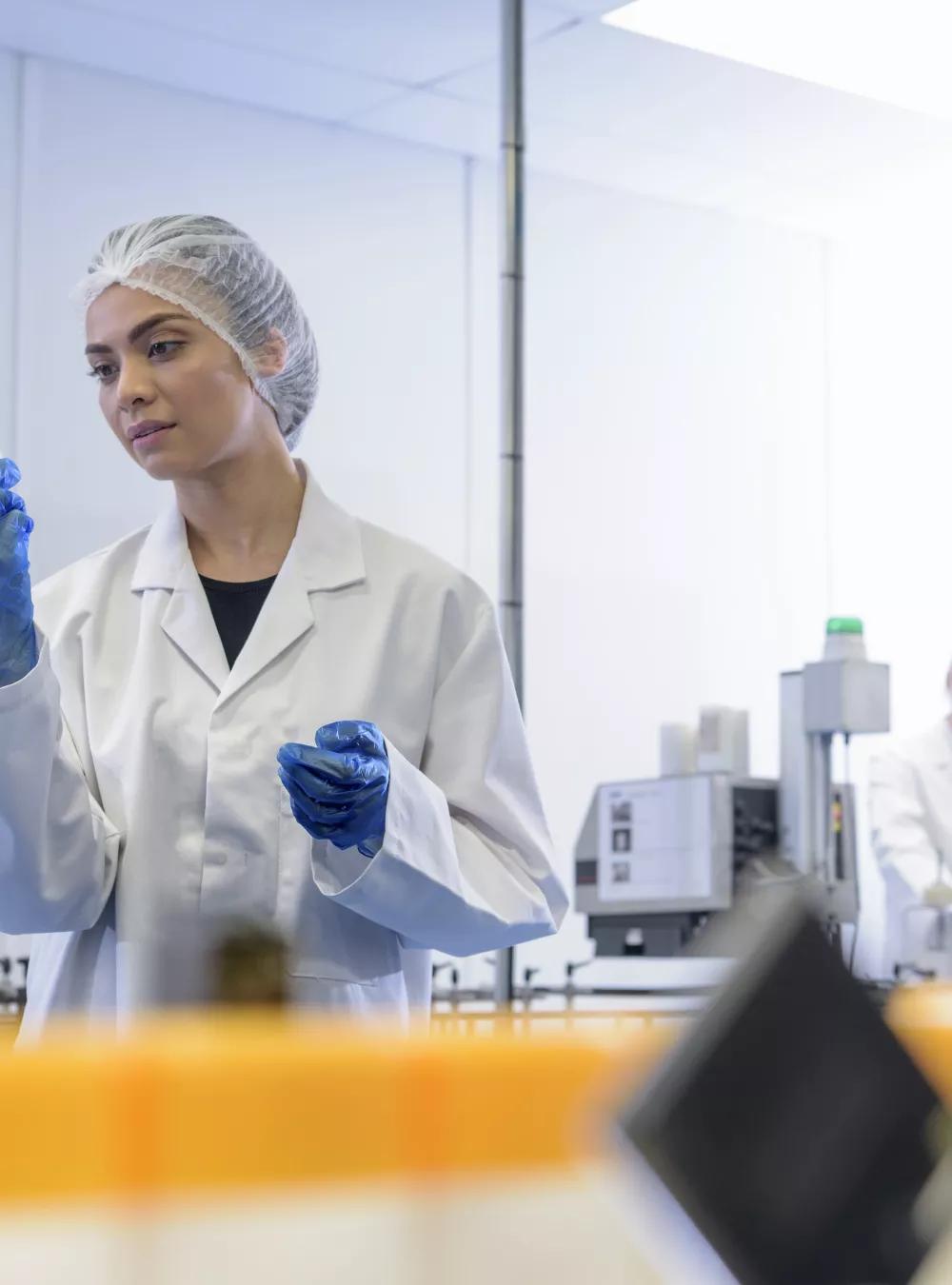Supply chain logistics are often undervalued—until a crisis. COVID-19 has drawn overdue attention to where medicines and medical devices come from. But systems engineering, data analytics, and public-private partnerships can help protect the pipeline.

Protecting Healthcare Supply Chains for the Future
When the COVID-19 pandemic started making global headlines, the priority was to make sure our families stayed healthy. But a critical part of keeping Americans healthy is keeping our healthcare ecosystem healthy. To accomplish that, our nation needs a stable supply of healthcare necessities—everything from saline and medicines to protective face masks and sterile needles.
Our economy, manufacturing sector, and transportation systems are intrinsically linked and increasingly global. That puts supply chains at risk. While we're used to seeing “Made in China” on clothing, electronics, and many other products, most Americans don’t realize that China manufactures much of our nation’s pharmaceutical supplies and medicines as well.
MITRE researchers are investigating the use of systems engineering, data analytics, and economic modeling to improve and secure the nation's pipeline of healthcare supplies. We're also promoting public-private collaborations that will strengthen our preparedness and global competitiveness in this area.
"This is a true systems engineering problem," says MITRE Vice President Beth Meinert. "We need a transparent end-to-end supply system for developing, manufacturing, and managing these valuable health resources."
Providing a Big-Picture View of Health Supplies
During a pandemic, many items are essential for preventing illness and saving lives. And when the demand far outweighs the supply, allocating scarce resources takes tough choices. The competition happens locally, regionally, and globally.
Our data scientists are researching ways we can apply our public-private data sharing and analysis model—developed for ASIAS, a collaboration between government and air transportation organizations—to improve our nation's healthcare resources.
ASIAS is designed to securely share proprietary data from a diverse group of aviation stakeholders, and the data analytics have improved aviation safety for all.
"Developing a similar data-sharing model for healthcare supplies could improve our level of preparedness in crisis situations—whether hurricanes or pandemics," says Monique Mansoura, who leads MITRE's work in global health security and biotechnology.
An expert in the field of emergency preparedness and biodefense, Mansoura has provided testimony before the "Bipartisan Commission on Biodefense" on our nation's healthcare ecosystem and emergency preparedness.
Our involvement with ASIAS and other public-private partnerships that involve data sharing has shown it's critical to have a trusted third party managing the shared data and resulting analytics. This is vital to strike a consistent, delicate balance of keeping companies’ intellectual property and private data secure while extracting unique insights from shared data that benefit all public and private members of the partnership.
MITRE has already applied the experience gained from ASIAS to other healthcare initiatives, including supporting the Centers for Medicare & Medicaid Services in establishing the Healthcare Fraud Prevention Partnership and creating the FDA Medical Device Cybersecurity Playbook. For these efforts, we coordinated secure data collection across organizations, anonymized it, and then conducted analyses and shared the results.
In the case of something as complex as the health pipeline problem, our trusted adviser role enables us to protect the integrity and privacy of stakeholders' data while our data science and analytics teams help provide solutions.
Collaboration to Combat a Crisis
MITRE is now part of the COVID-19 Healthcare Coalition, created specifically to support our nation's healthcare delivery system during this pandemic. We are coordinating the private-sector response to help facilitate communication and aggregate de-identified data from the many partners.
One of the many issues the coalition is addressing is the overall health supply chain. Clearly more analysis is needed, since countries like the U.S. have become dependent on imported drugs and medical devices.
For example, most antibiotics, ibuprofen, and acetaminophen—as well as many critical chemicals used in manufacturing drugs—come from China and other countries. This problem was exacerbated during the current COVID-19 pandemic when Chinese manufacturing slowed, and China stopped exporting face masks and other medical supplies.
"With this coalition the business and research communities have mobilized to address COVID-19 and give this data analysis to the healthcare system leaders and public health officials to make evidence-based decisions that can save lives," says Jay Schnitzer, MITRE vice president and chief technology and medical officer.
—by Kay M. Upham